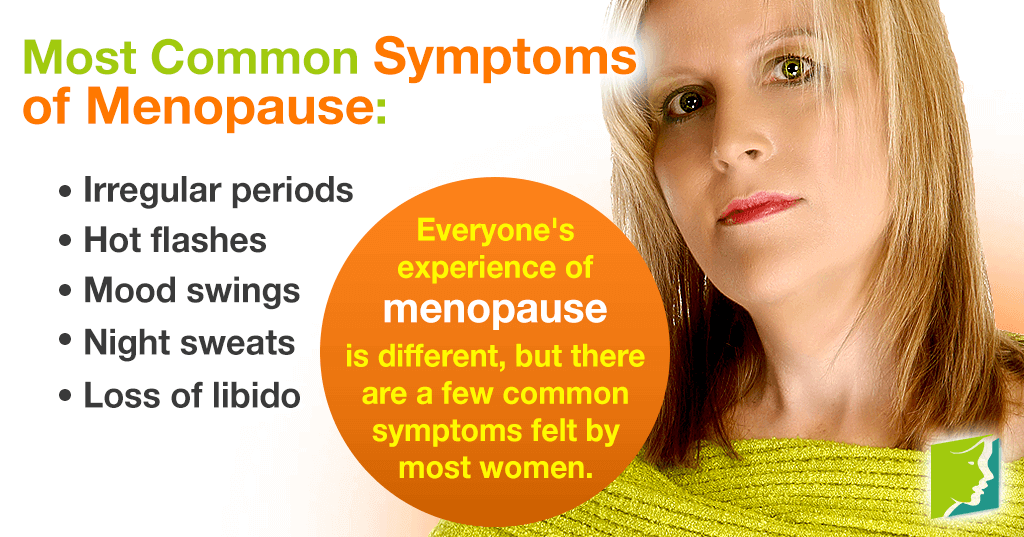You're getting older, and menopause looms on the horizon. Are the changes you've felt lately an early sign of this next life stage - or is it just paranoia? In order to better understand menopause and all that it entails, it's important to do some research on the most common symptoms in order to take the guesswork out of this major life change. There are a few key signs that will indicate the beginning of menopause.
The Most Common Symptoms of Menopause
Each woman will experience menopause differently. Some will encounter severe symptoms, while others may not suffer too many ails. Regardless of the person, there are a few common symptoms felt by most women.
Irregular periods
Periods will become sporadic during perimenopause - or the time just before you have entered into menopause. As women progress through this stage of life, estrogen production decreases and ovulation slows way down, making pregnancy less likely. Increasingly erratic periods are a definite sign of perimenopause. From there, your periods may become more or less common before beginning a steady decline and eventual disappearance.
Hot flashes
Hot flashes are experienced by more than 75% of women going through the menopause transition, making them highly common. Typically characterized by intense body heat, sweating, flushed skin, and rapid heartbeat, hot flashes can last anywhere from a few moments to a half hour. If you've been experiencing hot flashes, it could be a sign that you are entering into menopause.
Night sweats
Hot flashes that occur at night with increased intensity are known as night sweats. One of the more disruptive symptoms of menopause - as a lack of sleep may negatively impact you throughout the following day - night sweats are quite common, affecting up to 75% of women during menopause. Like hot flashes, night sweats occur when the body's temperature gauge is thrown off by hormonal imbalance that results during menopause.
Mood swings
Mood swings often go hand-in-hand with frustrating times in life. All people experience highs and lows in disposition, but the mood swings that often accompany menopause tend to be both more frequent and more extreme. Erratic emotions, such as anger and irritability, are caused by rapid hormone fluctuation that starts to occur during perimenopause and menopause. This is because a decrease in estrogen production directly affects the part of the brain that regulates emotions and moods.
Loss of libido
A decline in female sex hormone levels is the basis of menopause, leading to a significant decrease in sex drive for many women. If you've noticed lately that the passion has suddenly drained from your relationship, it may be due to the onset of menopause.
Click on the following link to learn more about how to handle these common menopause symptoms.
Sources
- BMJ Group. "Menopause: What is it?" Patient Leaflet. 2007.
- Hopkins, Virginia. Lee, John R. M.D. What Your Doctor May Not Tell You About Menopause. New York: Warner Books Inc., 1996.
- Love, Susan M.D. Menopause and Hormone Book. New York: Three Rivers Press, 2003.
- Martin, Raquel. The Estrogen Alternative. Rochester, VT: Healing Arts Press, 2000.




